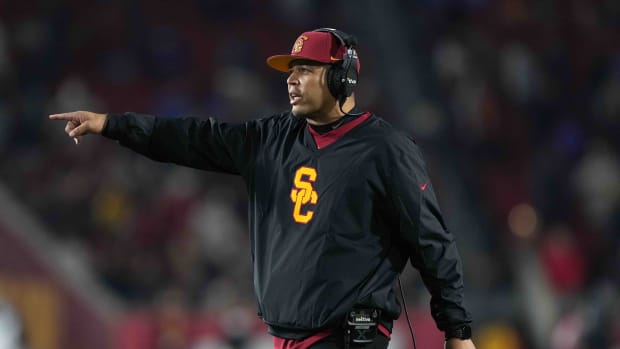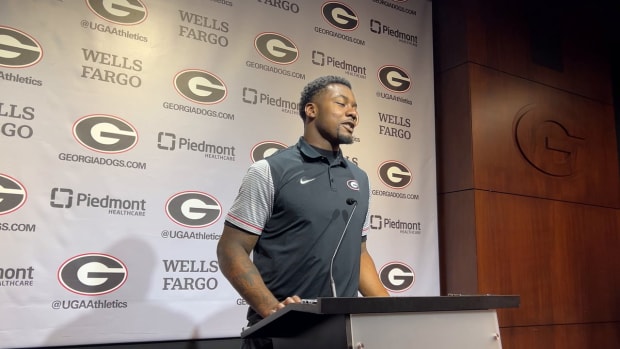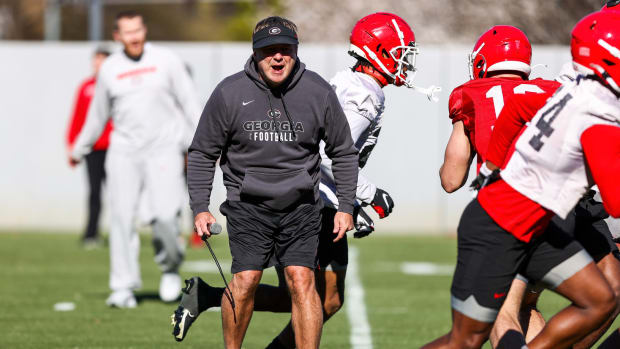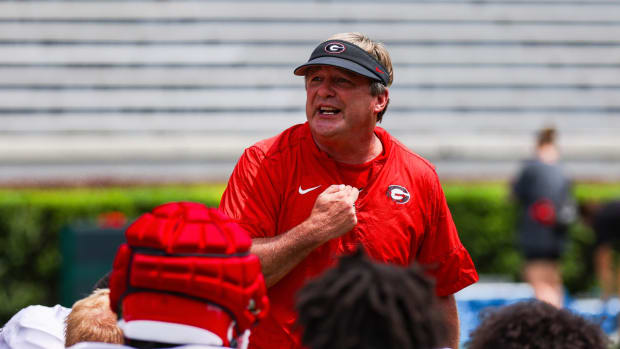College Football in the Spring Is Becoming More Likely. What Would That Look Like?
The Mid American conference was the first FBS conference to cancel its fall sports slate on Saturday and move its football season to the spring, and with the rumblings growing, it unfortunately seems that the Power 5 conferences could be moving toward making the same decision.
It's been reported that Big Ten commissioner Kevin Warren actually prefers a spring football season. SEC commissioner Greg Sankey told ESPN Radio that despite going conference only, the conferences are indeed connected.
"We want to be connected, but the best example is back in March… Different conferences made independent decisions but all arrived at the same destination."
So, if a spring football season were to take place, what exactly would that look like?
That Jamie Newman experiment was fun
Trevor Lawrence, Justin Fields and Jamie Newman—basically any player with NFL draft projections whatsoever—would likely be out on any type of spring football season. Let's say the season starts in February or even January: A full college football season typically lasts from the start of September into January of the following year. That's five months of football, just in terms of games, and that's not counting the six weeks of camp leading up to that first kickoff.
You are potentially asking players who are looking toward the NFL to play a college football season that, in the best-case scenario, starts in January and ends in May. The NFL combine is typically in February and the NFL draft is at the end of April perennially.
It's not just quarterbacks either. Most of your college football stars that are draft-eligible and intend to enter their name in the pool will likely forgo any type of spring season.
Year-round football
Assuming this spring football thing is a real possibility, if the season ends in May, June, or even July, what do you do about the actual 2021 season that is supposed to start in September 2021? Are you just supposed to ask college athletes to play 28 games—potentially 30 for the programs that play in the national title game—in a twelve-month span?
What happens if, and when for that matter, a player experiences a season-ending injury in the spring season? Say a sophomore tears his ACL in May—he's now lost a portion of his sophomore season and will likely miss majority or all of his junior season.
Virus could still be around
There's no guarantee that we have this virus figured out by time spring rolls around. It's something that SEC commissioner Greg Sankey spoke about just a few weeks back on the Paul Finebaum Show:
Well here's the problem I see with the spring right now, we've kept that on a list of alternatives, but I've not had the explanation of how we'd be assured of some reality come spring that will be better than the fall. And in fact, if you look at cold and flu season as people have talked about the deeper you go the more problematic that can be. And we are all in this world of unpredictability, we are building the bridges, crossing the river and writing the instruction manual as we do so.
Weather up North
Ever been to South Bend, Indiana, in the middle of February? It's not exactly pleasant. Sure, it gets cold toward the end of the football season every year for most of these football schools, especially the Big Ten, but the majority of the season is played in mild conditions. That's not going to be the case with a spring football season.
There's a reason schools like Ohio State and Michigan don't exactly host football recruits up to there school in the springtime. It's cold, it's windy, and there are ample amounts of snow on the ground.
The state of Colorado can see up to two inches of snowfall in the month of May. IN a spring season, there would be a considerable weather advantage for any school south of the Mason-Dixon line, essentially.
You can follow us for future coverage by clicking "Follow" on the top righthand corner of the page. Also, be sure to like us on Facebook @BulldogMaven & follow us on Twitter at @DawgsDailySI.





